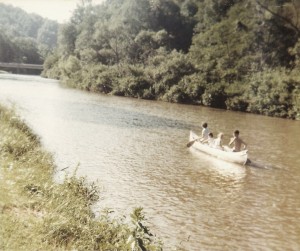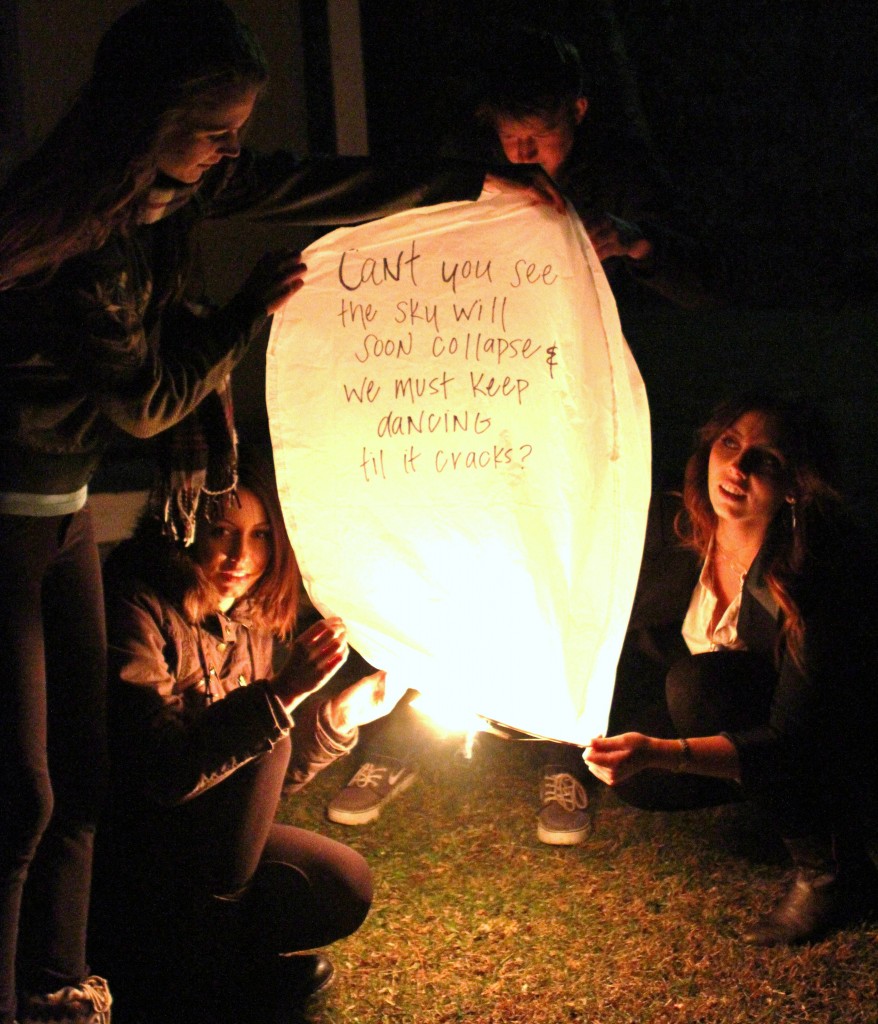Farm Lessons & Being Chicken
It hit me, the realization everyone gets when they are about to achieve something significant like graduation. We remember where we came from, where it – our life began. We start to remember our life up until now, what we have learned, what we have done, the experiences we have had, and how prepared for the future we are. I think of what I gained growing up on my family’s farm. Unless you grew up on a farm, it is hard to describe all the life lessons you learn, and the importance they hold in your life.
Have you ever heard of anyone raising chickens in the basement? I know a family that did. It was in the early spring and my mom and dad ordered 100 baby chicks. You have never lived until you get to the post office and pick up 100 chirping witties, or that’s we call them. So cute and soft you only wanted to hold them in your hand. I can remember carrying the boxes of chicks to the basement: they had little holes so you could peep in and see the chicks. I can remember I could not wait to play with them. My dad used my brother’s old kitty pool as their fist home. To keep the chicks warm he wired up some contraption involving a few 100 watt light bulbs and a lot of black tape. I can guarantee he did not spend a dime – everything was put together with parts and pieces or something that my parents had saved thinking, “I could use this sometime”.
After a while the chickens were moved from the basement, because they were big enough to live outside. The next few weeks were uneventful, feeding them, watching them grow. Then the activity started. Grandma is at the house at 5:00 in the morning. Mom is making a huge pot of coffee. My Great aunt comes over too. If you had not have known, you would have thought this deed occurred often because of everyone joining in together, accomplishing the task. To me it was more like a party than a job. Everyone wanted me to see this and touch that. Can you make a chicken leg do this?? My grandma thought me that you can pull a tendon from a chicken foot and make the foot grab. She learned it as a little girl, so she taught me. That skill will probably not be very beneficial to me in my future.
A family gathered to work with one another it is worth something.
Not all lessons gained on a family farm come from activities when grandparents come over, or when you pick strawberries for your first attempt a strawberry jam in a useful All-American-Pressure-Canner. Most lessons are subtle. It is within the day to day activities that one does on a farm – those things we don’t think much about – until the time comes for you to use your knowledge. It is common since, the ability to think at a rational level, to come up with a workable solution. It is the ability to know, the ability to do, and the ability to think for yourself. It’s knowing the canning supplies you’ll need for this seasons harvest. How many mason canning jars and who still has all the parts for mirro pressure cookers. These links are for a small local business who put heart into their customer service and their community.

I was excitedly accepted to Virginia Tech in 2008 and lucky enough to be born into a family that had always planned to financially support it. Once the initial excitement dwindled and my understanding of such an educational opportunity grew, my dad told me that grandma (his mom) never encouraged or discouraged his endeavors and dreams but would say, “you can always come on back home.”
Naturally, at 17 I was appalled by the possibility of “failure” which would necessitate my retreat home. This is one example of generational differences – my generation is last generation that will remember when school ordered 5 computers for the library. Back in 2008 I did not understand then the limits of my generational perception. I thought humans had essentially always unhappily completed life’s logistical details in a limited time – emails, grocery shopping, skype meetings, school work, appointments, chores. Is it possible to be happily occupied by the same activities? We race through time, wishing to stretch it, interrupt it, escape it.
Are you busy right now?Already behind on what you wanted to accomplish today? this week? this year? Our culture is obsessed with time. There is a fear that if we don’t try to cram as much as possible into our day, we might be missing out on something fun, or important, or special.
Not too long ago the measure of life’s worth was not in how many tasks could efficiently be accomplished in a day. Farming and raising animals once contributed to a good living, or living well. Our industrial agriculture system (a Prezi I make in Fall 2010) has discontinued this way of life of our Grandparents.
 Our increased rationalization inherent in social life, (the iron cage) traps individuals in systems based on efficiency and rational calculated labor.
Our increased rationalization inherent in social life, (the iron cage) traps individuals in systems based on efficiency and rational calculated labor.
The idea of being home for my grandma perhaps was a way of staying out of the cage. Is our goal not to be thoughtful, attentive, and mindful as time moves us through our days? Chickens contently complete each task before them with grace and thoroughness – a trait no-doubt shared by humans who tend to their chickens.
Researchers have given this feeling a name: “time famine.” And feeling like you’re experiencing a time famine has very real consequences, including increased stress and diminished satisfaction with your life. On the flip side, one can enjoy “time affluence,” the feeling of having enough time, or even a surplus of time. As Keith O’Brien wrote in the Boston Globe, “studies have shown that feeling ‘time affluent’ can be powerfully uplifting, more so than material wealth, improving not only personal happiness, but even physical health and civic involvement.”
We can turn off our smartphones. We have some say.
“Being chicken” is the slow movement. It is being a happy, thoughtful walker – not a stressful runner. Slow living and slow thinking is being chicken that can help us discover the re-creation of good work: working with care and patience, working with family and friends, and working toward excellence and joy.
“Often I am shocked to realize that many of my fellow students never see the heavens. They live in cities or in heavily populated suburbs, and the streetlights blind them to the stars. Mention Orion to most college students, and they look at you in bewilderment. They have read about the Great Dipper, some of them, but they have never lain on the top of a hill and watched the constellation move about the North Star. Strange world that wants to put a man on the moon but that cannot look at the stars!” From Edwin L. Peterson’s Essay “Why don’t Students see Orion?”
Maybe “the Sky is Falling” (remember Chicken Little? The chicken who believes the world is coming to an end)…
Here is my advice from a peaceful winter in the Blue Ridge Mountains:

